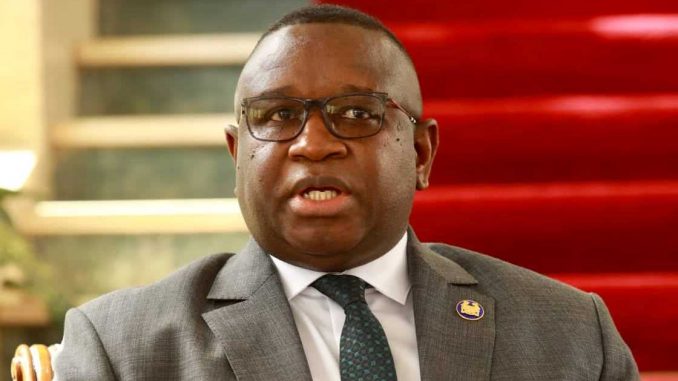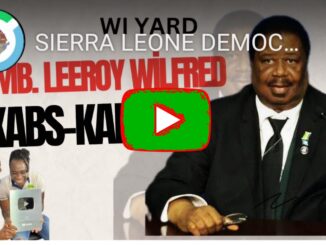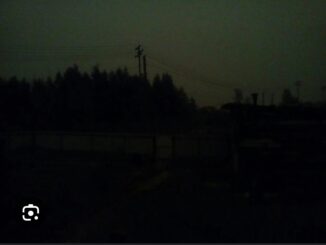
By Yanguba Kai-Samba
President Bio of Sierra Leone is fascinated by travelling overseas using public funds in his capacity as president.
But does he really need to undertake numerous trips with alarming frequency and what benefits has Sierra Leone got in return from these expensive overseas?
Each time the president traveled overseas, he is accompanied by large entourage or delegation. Each of them receive what they call perdem. We don’t know how much it cost but there are stuff like air fair, hotel bills and several other subsistence we don’t know but should know , because we the people of Sierra Leone pay for the president trips abroad including those who accompanied him.
President Bio’s Tanzanian counterpart, President John Mugofuli , has cut down deep on foreign trips for his officials . He himself travels on economy class when he does . Mogofuli doesn’t supper imposed himself on ministerial responsibility. He delegate to his ministers, effectively sending out his foreign minister on overseas trips whiles he focus on issues and economic challenges on the ground. He is mindful about the impact of the cost of foreign trips would have on his country’s budgets.
The business of government can be conducted overseas by the country’s ambassadors and the minister for foreign affairs or appropriate minister vested with such authority by the president. The foreign minister can represent the government overseas and sign bilateral agreement including memorandum of understanding MOU , like when I used to sighed the removal of illegal immigrants on behalf of Her Majesty’s government as a civil servant.
Sierra Leone is a poor country(not supposed to be) and gross inequities, that had been declared by UN as a country of hunger , but their president used a lot of state funds on numerous nonessential overseas trips.
The UN hasn’t declared Tanzania as a country of hunger and their president has traveled abroad only four times ( all in neighbouring African countries) in 3 years since he was elected in 2015.
Sierra Leone spend large amount of the country’s money on politics and those holding political positions than on any other public sector.
It is harmful for a country in perpetual deficits, cumulative external loans and near absence of socio-economic necessities to sustain it hungry population, to distribute the country’s money to politicians than spend it on electricity supply, water supply, food production , hospitals and the professional class, who deserve better pay.
As a nation, we are deceiving ourselves if we believe our economy is working or will improve from its protracted deficits position.
We cannot reduce the country’s deficits without growth in the economy. However, to grow the economy, raising taxes is one way of doing it, but this could be not an ideal policy. Sierra Leone lacks a growing numbers of people in employment to pay taxes either directly or indirectly.
Cutting down on public spending is another means to balance the economy. But government that is bloated with cabinets ministers and deputies , free fuel, high pensions and gratuities, only spend more on public expenditures, than reducing deficits.
This is a top down approach of economic management ,that favours and promote unequal distribution of funds, that leads to the widening gap between the political class and the vast majority of people, wallowing in acute deprivation and abject poverty in Sierra Leone.
Sierra Leone, due to greed, corruption , theft and the cabal of successive governments, who ran the economy, have created a dystopian society, a situation where those in power live in opulence with too many of our people turned beggars.
A government running an economy that is weak and in deficits, will be making a grave policy decision oversight ,to adopt a top down infrastructural project like the proposed Lungi Bridge, because it would benefit the foreign investors and not 95 percent of the population, who are in dire need of electricity supply, clean water, good hospitals , food and clinics for the rural communities.
Over 50 percent of Sierra Leone population are illiterate despite the country having the first university in Subsahara and where Nigerians, Ghanaians and Gambians in the subregion received their education.
70 percent of the population are not in formal employment and a corresponding percentage to household income is less than 2 dollars a day.
Our country remains at the bottom of all human development index with high death rate and hunger than any country in peace time.
The world bank had classified the North African country of Algeria as ” upper middle income country” although poverty and corruption is present.
Sierra Leone has never achieved a middle income index, so we need to find an appropriate explanation as to why even countries with corruption and poverty could achieved upper middle income.
The Bio administration made a quick poverty reduction the central theme of his party’s manifesto . He wouldn’t be able to make a move on this, if his policies , as it seems, are not focus on building a just society by directly investing in the needs of the poor communities to address their problems.
In case my commentaries on the Bio administration are mistaken for an APC supporter , I am the former UK SLPP Secretary General, during which the role I played in the campaign to restore the exiled SLPP administration of president Kabba, was acknowledged by the president Kabba RIP himself.
If we had lost that campaign to remove the combined AFRC ,RUF junta, SLPP wouldn’t have come to power again .



